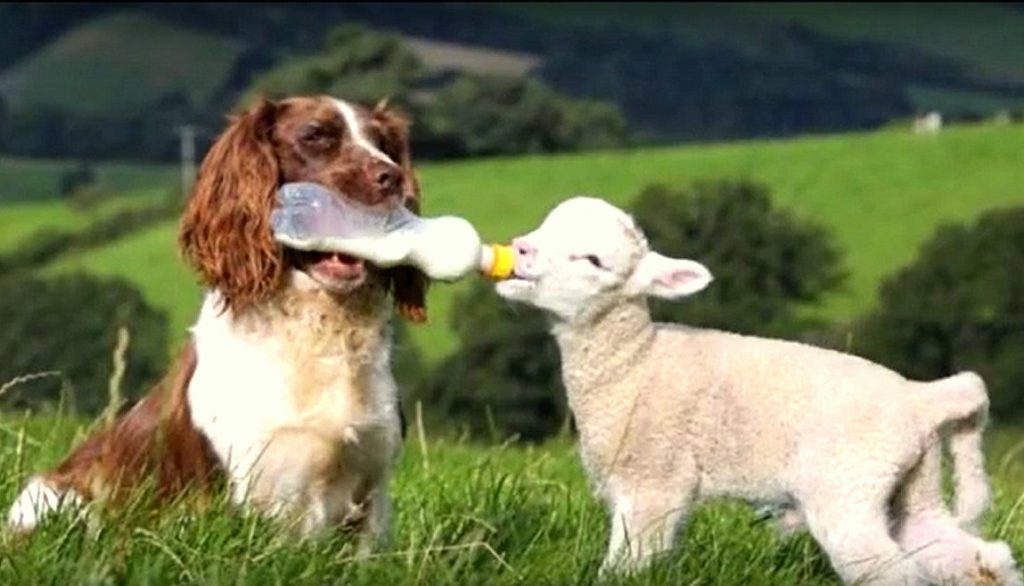Animals – Why do we love one but eat the other? A psychologist explains
(Collective Evolution | Alanna Ketler) Do you ever question why we keep animals such as cats, dogs and goldfish as pets, but choose to eat others such as pigs, cows, and salmon? Where is the disconnect? Why the double standard? How come we value the lives of the animals we have chosen to welcome into our homes as pets and not those of many other living creatures? Why don’t we eat robins or cougars? It is interesting how this thought doesn’t even cross the minds of the majority of the population.
In October of 2014, iVegan launched an ad campaign “Why love one, but eat the other?” that ran on the Toronto Transit Commission (TTC). Thousands of people were exposed to these ads daily, with each poster showcasing two animals with the heading, “Why Love One, But Eat The Other?” The posters would then list the similarities between the two animals. There were three ads in total, featuring the pairings of a puppy and calf, kitten and chick, and a puppy and piglet. These ads also listed some (of the many) cruel and inhumane practices that take place on factory farms across the globe. At the very least this ad campaign raised awareness to the cruelty that specific animals are forced to endure and brought attention to the very valid question, why love one, but eat the other?
Video: Ted Talk with psychologist Melanie Joy discussing the idea of Carnism
You may be wondering, what exactly is carnism? As defined by Melanie Joy the definition of “carnism” is as follows: “Carnism is the invisible belief system, or ideology, that conditions people to eat certain animals. Carnism is essentially the opposite of veganism; “carn” means “flesh” or “of the flesh” and “ism” denotes a belief system. Most people view eating animals as a given, rather than a choice; in meat-eating cultures around the world people typically don’t think about why they find the flesh of some animals disgusting and the flesh of other animals appetizing, or why they eat any animals at all. But when eating animals is not a necessity for survival, as is the case in much of the world today, it is a choice – and choices always stem from beliefs.”
Check out the Ted Talk below for more information on this subject.
To learn more about the work of Melanie Joy and the concept of carnism, check out her book, “Why We Love Dogs, Eat Pigs And Wear Cows” and website.
So what can we do?
You can drastically cut down your meat consumption. If you are unhappy with how these animals on factory farms are being treated, QUIT SUPPORTING IT. Stop turning a blind eye to what is happening right under your nose. You can make different choices, you always have another option, and this is something that is extremely important to remember.
If the idea of cutting out meat sounds way too difficult for you, consider trying “Meatless Mondays” and make one day a week a vegetarian or vegan day. This will give you a great opportunity to try out some vegetarian/vegan recipes (check out OhSheGlows.com for some amazing recipe ideas), cut down your meat consumption, and open your mind to the fact that the amount of meat we consume on average is not even close to being necessary to sustain us. It is a habit that needs to be broken. It is time for drastic change on this planet, and it will only happen with the help from YOU! It is up to us all to “Be the change we wish to see in the world!”
Spread the word, and share this Ted Talk and article with your friends and family. Even though you may believe they won’t listen, you never know what could happen. This may be the one thing they need to hear to help them change their minds.
Much Love,
To all sentient beings on this Earth.
Source: Collective Evolution
You may also like:
A plea from a Buddhist monk may change the way you feel about animals
In Canada, animals are now considered “Sentient beings” and not property




